#MEDIA MONOPOLIES
Explore tagged Tumblr posts
Text
from 2022
11 notes
·
View notes
Text







I don't want to regret the way I lived
#my art#jujutsu kaisen#jjk#fanart#jjk fanart#jujutsu kaisen fanart#yuji itadori#gojo satoru#nobara kugisaki#nanami kento#choso kamo#junpei yoshino#jjk leaks#jjk spoilers#jjk manga spoilers#this idea started as a 2 part series . then my braincells decided to spark and supplied 7 PAGES#'did you sleep hina' no#ws looking up mentally stable things like 'who has died in jjk' smh i love my hyperfixation media im sooooo glad so many ppl r DEAD#i *could* have included more ppl but i think this is a good crew. this is a yuuji emotional support crew#also Was gna include his grandpa final panel but i Did Not Want To#he is implied through th dialogue#side note i donot like how i cn see this scenario playing out . ..yuuji this isnt ur stop u r monopoly voice Just Visiting ok >:(#anyway I broke my own heart with this and ik i hyped it up a lot but i hope that its not just me...#hope i did not hype it up fr nothing and no one else finds it devastating :((((( that would b humbling in the worst way#pls ...join the happy party train.......i hate it here i suffered pls :<<<<#also !!!! colours in this !! i cooked i fear . adding th first bit of warm hitting yuuji's face after th first 2 panels....#ive never had that kind of experience while drawing before it was wild . painful ! but wild.#the whole transition from p 2->3 might b the most emotionally moving piece ive ever made to me#not 2 sing my own praises tho i will shut up ! i wil. nap
8K notes
·
View notes
Text


#politics#us politics#political#donald trump#news#president trump#elon musk#american politics#jd vance#law#media#biased media#business interest#monopoly#public opinion#internet#amazon#social media#twitter#x#elon#musk#us news#usaid#jeff bezos#bezos
221 notes
·
View notes
Text
Tiktok going dark for not even 24 hours after the CEO had reposted MAGA shit on his profile, and Americans are welcomed back with a message explicitly thanking Tr*mp, and the CEO's profile no longer saying CEO.
Americans: omg yay tiktok is back
meanwhile:
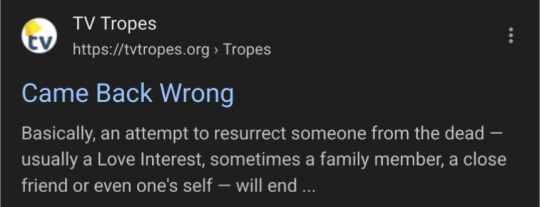
#and no blocking the Meta/Facebook tiktok profiles isn't activism#Americans do something about your corrupt government before we all fucking pay for it challenge#it's presumed meta now owns the entire fucking monopoly of social media in the west#tiktok#tiktok ban#rednote#tiktok refugee
90 notes
·
View notes
Text

#google#surveillance capitalism#big tech#social media#ai#privacy#technology#artificial intelligence#us politics#meta#apple#amazon#palantir#twitter#instagram#hey google#monopoly#this ecommerce life#comics
45 notes
·
View notes
Text

Now we see the stupidity inherent in the system (that is modern copyright law.)
#disney#steamboat willie#public domain#mickey mouse#tumblr memes#copyright law#memes#shitposting#walt disney#animation#monopoly#copyright#intellectual property#media preservation#public domain day
362 notes
·
View notes
Text
Atlantic Canada's largest newspaper chain is now officially owned by Toronto-based Postmedia Network Inc.
On Monday, Postmedia confirmed the closing of its $1-million purchase of SaltWire Network Inc. and the Halifax Herald Ltd. in a short statement on its website. The sale was approved by a Nova Scotia Supreme Court judge on Aug. 8.
Andrew MacLeod, Postmedia's president and CEO, said his company is "delighted" to welcome the new media properties, saying the sale "preserves their vital role within the community."
Full article
Let's explore why this is a very bad thing.
Postmedia, the company that just bought a chain of over two dozen Atlantic canada newspapers, is known for many things- none of them good.
This is an incomplete list of harmful things that Postmedia and its executives have done/are known for:
Right-wing politics. "The National Post was founded in 1998 by Conrad Black, who has connections to conservative politics and sat as a Conservative Party member of the United Kingdom's House of Lords. The Post has always been aligned with the right side of the political spectrum. ..."Just in the past couple of years, Postmedia has issued an edict stating that they should move even farther to the right, so they're very reliably conservative," said [Media journalist Marc] Edge. "In fact, [they] endorse Conservative candidates often over the objections of their local editors.""
Union busting. "They employed a mix of cajoling (such as with buyouts and raises), entreaties to preserve the paper’s uniquely collegial newsroom culture, office-wide memos decrying the havoc a union would wreak, and, according to CWA Canada President Martin O’Hanlon, one-on-one meetings between staff and management."
Monopolization of canadian news media. "Postmedia Network’s purchase of Saltwire Network will extend its grip from coast to coast, as it already dominates Western Canada with eight of the nine largest dailies in the three westernmost provinces. This purchase will give Postmedia the largest dailies in Nova Scotia, Prince Edward Island and Newfoundland to go along with the largest in New Brunswick, which it acquired from the Irving Oil family two years ago."
Cuts to pensions and benefits while giving large bonuses to executives. "...several top Postmedia executives had received enormous retention bonuses at a time of aggressive belt-tightening (after which many left regardless), and second, the March 2017 announcement that benefits and pensions would be curtailed significantly."
Already beginning to lay off staff from the Atlantic canada newspapers they now own. "...the long-term future of workers in departments like circulation, advertising, customer service, finance and production remains uncertain. "Staff believe maintaining local jobs in the community is critical to retaining both subscribers and clients," the union said. Last week, the union representing workers at The Telegram confirmed that four of the paper's 13 newsroom positions will be eliminated."
More reading: source 1, source 2
Tagging: @allthecanadianpolitics
#mine#cdnpoli#postmedia#national post#media#news#news media#newspapers#conservatives#conservatism#atlantic canada#capitalism#monopolies#monopolization#canada#canadian news#canadian politics
141 notes
·
View notes
Text
lmao if you truly believe gen ai art is somehow a marxist phenomenon "socializing" the labour of love that is uniquely human creation aka art ur actually delusional. artists are some of the most exploited labourers out there rn like the success of so much media hinges on art production from beginning to end they are wrung dry with insane crunch deadlines and kicked to the curb once their contracts are over just to scramble for the next job to stay alive like putting their bodies and finances on the line for their passion just like holy shit are you stupid to find glee as they suffer in such a risky industry. ai art serves capitalism to shovel more advertising and propaganda in your gaping mouths faster than ever without paying or running it by a middleman who might refuse to do that shit on principle and it makes the world a worse fucking place at a far larger scale than any (selfish) benefits it might provide so please for the love of god study some art history or what the industry is like maybe even talk to an artist before you go waxing poetic on a foundation level thesis that amounts to nothing but fart sniffing jargon thank you very much!!!!!
#lemme say it again AI ART SERVES CAPITALISM#OPEN YOUR FUCKING EYES#the process of art is GOOD FOR YOU learning skills is GOOD FOR ALL art is not just about the fucking PRODUCT you dweebs#HELLO#blocked you are fucking blocked#sorry someone put a post on my feed that made me super mad#to find joy in the demise of “petty artisans” but frown at the decline of quality in media produced for the masses by monopolies. wow.#great take! eat nails#gen ai is a branch of the economically explosive tech industry. take 1 second to examine it. and tell me. how is it marxist. precisely.#im listening.#no no im not im killing you with a rock actually#OK IM DONE
30 notes
·
View notes
Note
what are your favourite horse movies
This will be a really boring answer, but spirit stallion of the cimarron, shortly followed by Black Beauty 1994.
I find most horse movies really boring cuz they're all the same 😅 Rando city girl™ moves to her uncle or whoever, uncle has "CrAzY HorSe No OnE cAn Ride" that, of course, city girl™ jumps up on mid-pasture and just trots around on, and don't forget the 'big compettion' that's gonna win the money so uncle don't have to sell his farm or smth.
#It's also really not my genre ironically enough#I prefer modern fantasy overall#but good horse media is also really hard to get a hold of#there's a reason starstable has monopoly on the horse gaming#and it's cuz they're the only company who could be assed to actaully make a good game#polless horse ask
20 notes
·
View notes
Text
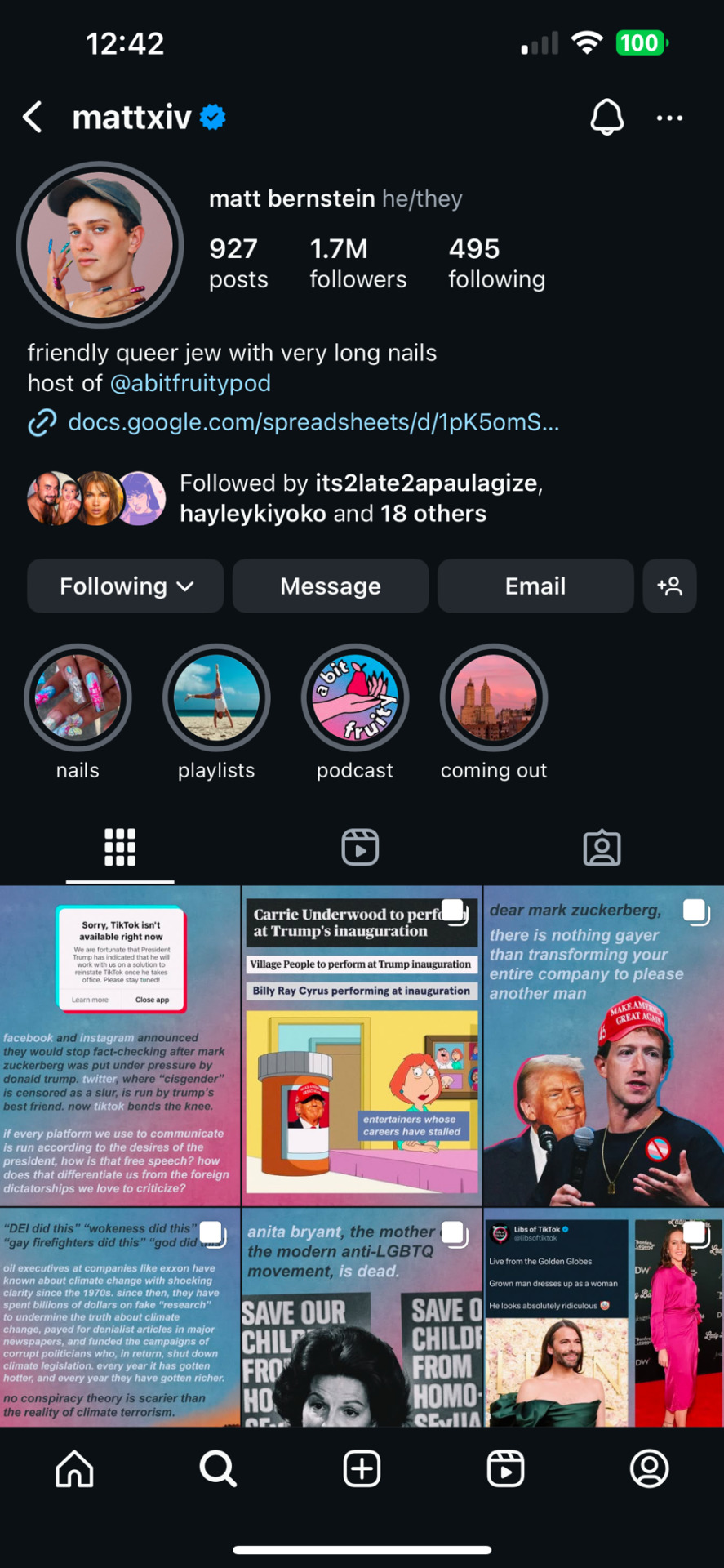
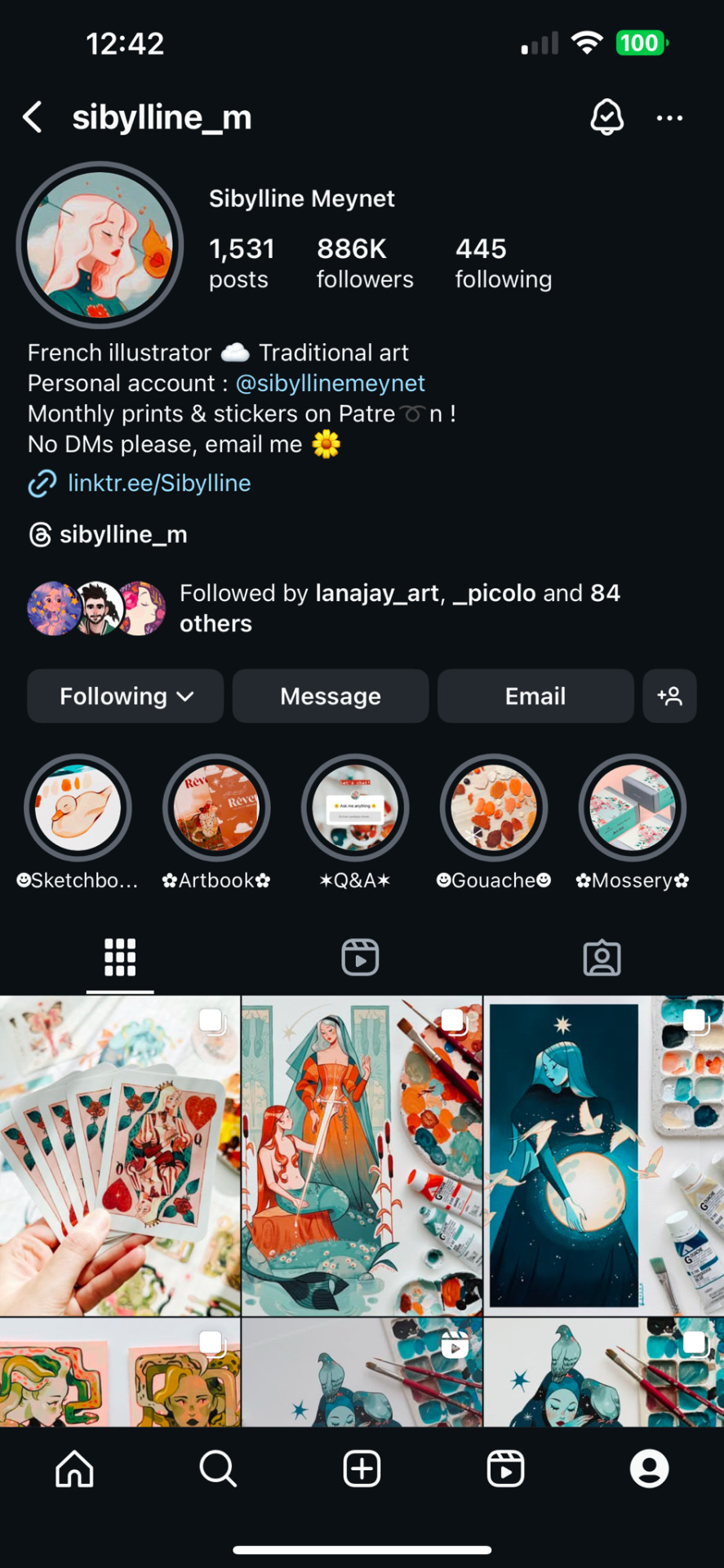
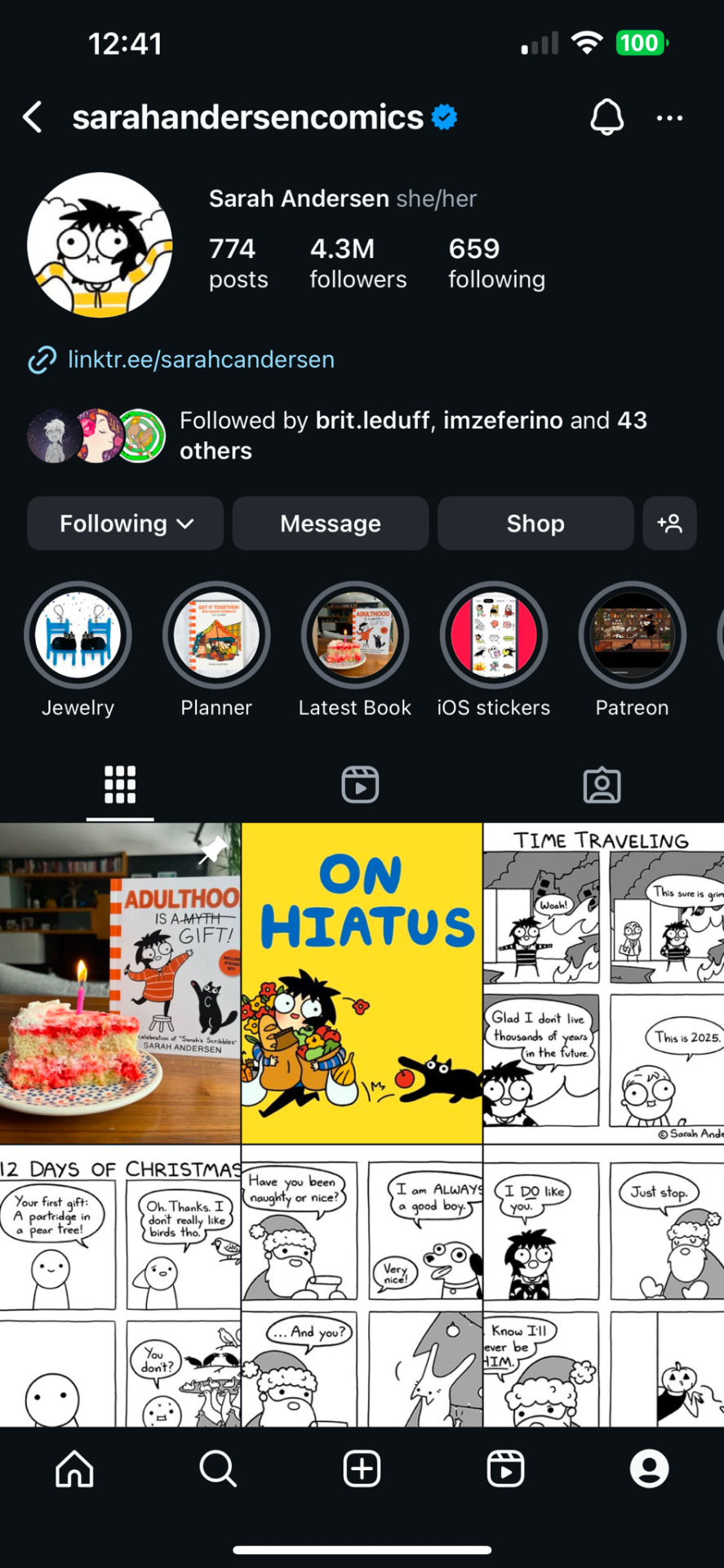
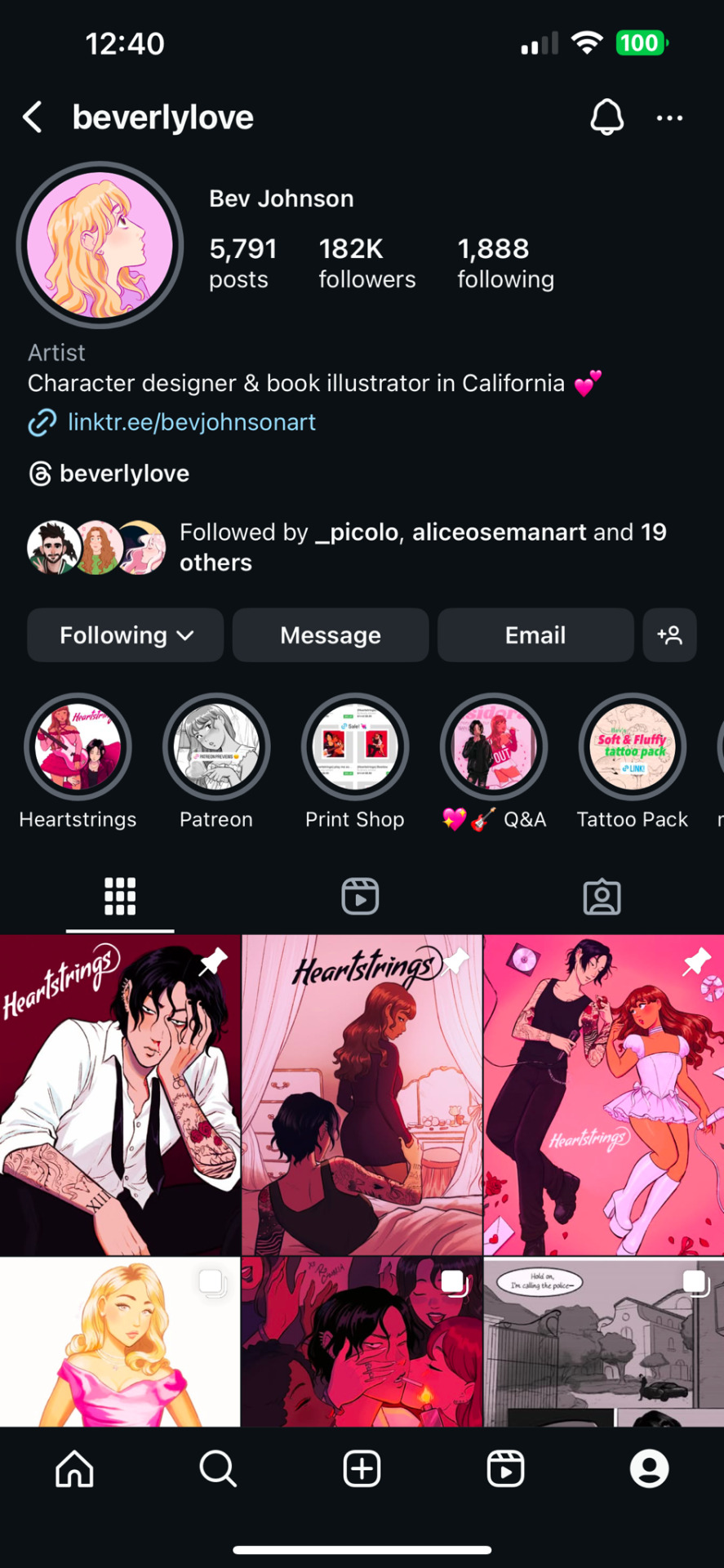
Fascinating and not at all suspicious that Instagram changed from their iconic square layout to a vertical layout right when TikTok met its demise. It’s almost like its demise was orchestrated by Meta as a power grab so they could squash the competition… OH WAIT that’s exactly what happened.
It’s crazy to have seen the rise and fall of social media I feel as though the whole internet is collapsing in on itself.
#tiktok#tiktok ban#meta#instagram#I didn’t use tiktok much anyway#I absolutely hated the censorship on tiktok#but the large corporate/government conspiracy around banning TikTok is scary#like meta trying to gain some sort of social media monopoly#trump advocating to ban tiktok just so he can swoop in and be the ‘hero’ who saves it#it’s all extremely ominous
10 notes
·
View notes
Text
Okay, Patrick H Willems' "What's Next After Superhero Movies" (which is linked below) inspired me to make this because I want to know the people’s opinion on the possible replacements to the MCU mentioned in the video.
youtube
#cinema#movies#film#patrick h willems#marvel#marvel mcu#mcu#the following tags are media mentioned in the video#mario#super Mario#pokemon#death stranding#barbie#barbie 2023#polly pocket#Monopoly#the exorcist#face/off#dc#challengers#anyone but you#treasure island
13 notes
·
View notes
Text
Every so often I remember that Disney+ has the foreign distribution rights to Doctor Who and a little part of me dies.
#like why do media monopolies exist#how can you monopolize art#15th doctor#whoniverse#doctor who#disney
13 notes
·
View notes
Text
I cannot recommend this podcast interview with Cory Docotorow enough. It's about so much more than green tech and enshittification. anyone who uses the internet should listen.
#podcast#podcasts#Cory Docotorow#solar punk#green energy#climate change#climate crisis#enshittification#internet#tech bros#technology#canada#european union#monopoly#right to repair#capitalism is a scam#privacy#green technology#cars#computers#linux#social media#neoliberalism#economics#economy#fair trade#open source#union workers#labor vs capital#labor movement
7 notes
·
View notes
Text

🙃
Doodle comic bc I'm upset
#palworld#pocketpair#nintendo#the pokemon company#the pokémon company#pokémon#pokemon#grizzbolt#pikachu#art#artwork#drawing#digital art#drawings#digital artwork#digital media#mario#im so sick of monopolies. can we bring the guillotine back already#pocketpair lawsuit#palworld lawsuit#pokémon lawsuit#pokémon lawsuits#nintendo lawsuit#nintendo lawsuits
18 notes
·
View notes
Text
Thirty minutes and 9 paragraphs into an excited list of alternatives to Spotify's monopoly re: music, videos, podcasts, audiobooks, for weenies like me who are nervous about pirating, and my app crashes.
Well now I'm on a laptop and I swear to god if this crashes too I'm calling it a conspiracy.
LEGAL ALTERNATIVES TO SPOTIFY:
Music: There are virtually limitless options here. Buy music directly from the musicians/band! If they don't sell mp3s directly from their site, they almost certainly have CDs for sale, so buy those and rip the mp3s to your computer (if your computer doesn't have a CD slot, you can buy an external one for fairly cheap). Go to a new/used music store, they still exist!, and buy albums there. Buy old albums from ebay! Go to goodwill or other thrift stores and browse there collection of cast-off music for cheap, you never know what you'll find. Hell, browse their cheap vinyl if you prefer their sound and get a vinyl-to-MP3 conversion device if you like. They even have conversion devices for cassette tapes, if you find a treasure that was only ever released on tape. Once upon a time I would have said Bandcamp for MP3 or even physical albums (I once upon a time got an AUTOGRAPHED TO MY NAME CD of Lauren Ruth Ward's Well Hell album), but they recently union busted and a lot of artists pulled their stuff from them. I don't really know anything about 7Digital's business practices, but they are another seller of MP3 music, as well as MP4, FLAC, and WAV.
Music DEVICES: If you just want to manage everything on one device, your phone, get the free VLC app! It's open source and is absolutely wonderful. I only ever used it for music, but it's capable of much more than I realized, and it's open source and ad-free! And the audio files are tiny, even when I was running out of room on my sixteen gig old phone, I still had a substantial music library on it before before I got a dedicated music player.
Which brings me to my next point: MP3 PLAYERS STILL EXIST! I own two! My first one is a twenty-dollar SanDisk Clip Jam (an established and sturdy brand), my current is a thirty-dollar Phinistec Z6 (that just came out of nowhere it seems). Each have their pros and cons, and there are so so so many options out there. Some are smart, some don't even have wifi (neither of mine do). Some have expandable card slots for even more music. Some are extremely basic, some have a plethora of features. Some are cheap but still decent in sound, some are high-end for that true audiophile experience. Some have touch screens, some have buttons, some have no screens at all. Some only use wired earphones, some only use bluetooth, some (like the Z6) can use both! There are so many brands out there even in Twenty Twenty-four. Even the random brands cropping up online are some really good shit, and I bought both of mine used bc I have concerns about the lithium industry. Oh, and some are regular battery powered. And you don't need iTunes or anything, I just use the basic Windows Media Player to rip my CDs or put mp3s music on my player. In fact I've been avoiding Apple players because I'm worried they'd brick older devices, especially ones with wifi. But there are so many options out there, it's impossible to name them all.
Audiobooks: YOU DON'T HAVE TO USE AUDIBLE! Libro.fm has a similar business model (an optional subscription fee with a free credit every month, or the option to buy book without a subscription for a little bit extra price), and you can direct the profits to the indie bookseller of your choice! I have mine set to go to Baltimore's anarcho-feminist bookstore, Red Emma's. How to listen to the audiobooks you buy? Libro has an app you can listen to directly from! AND they have the option to directly download from the site (meaning no program you have to install) the book in non-proprietary mp3/mp4 files so you can listen to it on any device that can use those files! THAT INCLUDES MP3 PLAYERS! Almost every music player on the market now not only plays audiobooks, but has sections on the device specifically for them! Some, like the Clip Jam, are even proprietary audible-compatible if you still use or already have books there (check audible's site, and you'll have to go thru a registration process). I was listening to audiobooks on both my CJ and the Z6 (the Z6 doesn't have a section for them, but still played them), but I recently bought an e-ink/e-paper (meaning no backlit LED screen causing eye strain or insomnia) ereader, a Pocketbook Touch HD 3, and that is mp3/mp4 capable for audiobooks, and is easier to maneuver books with since it's meant for books. ALSO: the library apps Hoopla and Libby also have audiobooks you can listen to via phone or computer/browser, depending on your library's catalog. Some ereaders can even have the apps for them, and if they have audiocapabilities you can use the ereader for that too.
Podcasts: There are so many apps for this. I have Podcast Addict (I don't remember off the top of my head if it's on apple, I use android, but there are still so many apps). Literally I only had to sacrifice one podcast when I stopped using spotify, PodcastAddict has everything else I've ever listened to or want to listen to in the future. You can download them for offline use on your phone, and, you guessed it, MOST MP3 PLAYERS HAVE PODCAST SECTIONS TOO. MINE DO! There are still ads at the beginning and end, but I usually skip over them without care.
Video: This one is a bit trickier as YouTube is also a monopoly, but what I do is just watch yt on my phone's Firefox browser with UBlock Origins adblocker installed. Sometimes yt gets into a hissy fit with adblocker, but UBlock usually gets ahead pretty quickly thus far. And if in the periods Origins is losing, I just find something else to do. I'm sure someone else has recommendations for videos, they're just not a big part of my life right now.
Anyway, don't let the horrid beast that is spotify monopoloize the audio industry OR your time! There are options, and even if you're not a luddite like me that hates having everything on my smartphone bc I'm worried about privacy or companies yoinking their stuff off my devices via wifi (like Amazon did once with their copies of, of all things, Nineteen Eighty-four about a decade ago) at the whim of corporations. You HAVE OPTIONS! YOU HAVE THE POWER TO CONTROL YOUR MEDIA AND REJECT MONOPOLIES!
#i'm very passionate about this#ily physical media#for a certain definition of physical media since it's all mp3 and such. but I have the power and can hold the device it's all on in my hand#and I own everything on it and they can't take it away from me#spotify#music#audiobooks#podcasts#monopolies#edit: bolded the beginnings for ease of browsing/reading
21 notes
·
View notes
Text
Let the Platforms Burn

Tumblr is seeing massive growth thanks to the implosion of Twitter and Reddit. but migrating here or elsewhere means starting all over from the beginning, which is why users so seldom make the leap away from much-despised platforms (can you say "Facebook")
in his important new piece, Cory Doctorow argues that we need to fundamentally change the way social media and other user-content platforms operate, and give users the power to easily migrate their content and connections from site to site
he argues we need to let bad platforms burn (using the metaphor of healthy fires that clear out dangerous underbrush, preventing destructive wildfires) to make room for new, better ones without punishing users for escaping social-media prison
full piece (and podcast version) here: X
a few choice excerpts:
Today's tech giants run "walled gardens" that are actually walled prisons that entrap their billions of users by imposing high switching costs on them. How did that happen? How did tech become "five giant websites filled with screenshots from the other four?"
The answer lies in the fact that tech was born as antitrust was dying. Reagan hit the campaign trail the same year the Apple ][+ hit shelves. With every presidency since, tech has grown more powerful and antitrust has grown weaker (the Biden administration has halted this decay, but it must repair 40 years' worth of sabotage).
This allowed tech to "merge to monopoly." Google built a single successful product – a search engine – and then conquered the web by buying other peoples' companies, even as their own internal product development process produced a nearly unbroken string of flops. Apple buys 90 companies a year – Tim Cook brings home a new company more often than you bring home a bag of groceries.
When Facebook was threatened by an upstart called Instagram, Mark Zuckerberg sent a middle-of-the-night email to his CFO defending his plan to pay $1b for the then-tiny company, insisting that the only way to secure eternal dominance was to eliminate competitors – by buying them out, not by being better than them. As Zuckerberg says, "It is better to buy than compete"
it's great that we're seeing such a reinvigorment of Tumblr, but this site's delight could evaporate overnight with some bad updates (presaged in recent corporate messages). better than hoping Tumblr might stay good forever is ensuring we can leave without losing everything - and knowing we can leave would help prevent the enshittification of our beloved Hellsite
85 notes
·
View notes